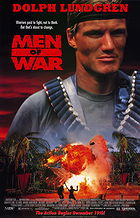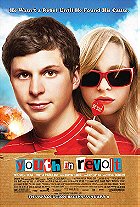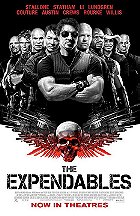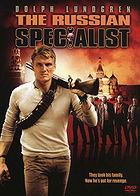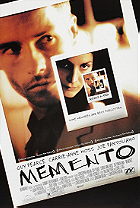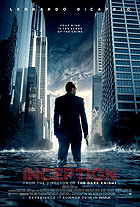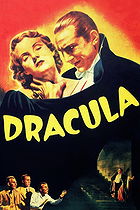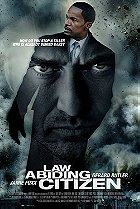Posted : 14 years, 10 months ago on 1 August 2010 07:33
(A review of
"You're asking me for inception. I hope you do understand the gravity of that request."
The critical mind boggles when confronted with the challenge of reviewing Inception. It is not that this is a particularly difficult movie to review, but it is tough to pen a critique of the film due to the subjective nature of reviews. So far, die-hard loyalists have expressed severe hostility towards any critic who has dared to write anything negative about writer-director Christopher Nolan's 2010 project, and therefore, it is hard to remain impartial and fair. Certainly, there is a lot to admire about Inception, as it is a lavish, intricate mindfuck exhibiting the filmmaking excellence that Nolan is renowned for, and it is a must-see for moviegoers who enjoy solid, intelligent, original blockbusters. Despite the technical virtuosity, the commendable conceptual scope and the phenomenal visuals, Inception is as emotionally stimulating as an early-morning University lecture, as it lacks humanity and ethereal imagination.

Here's the premise of Inception at a basic level: what if Freddy Krueger was James Bond? The narrative unfolds in a near-future setting where devices allow agents to enter the dreams of others and extract their secrets. Dom Cobb (Leonardo DiCaprio) is an ace extractor who makes a living by stealing deep-seated thoughts and secrets from his clients' corporate competitors. Corporate magnate Saito (Ken Watanabe) hires Cobb to implant an idea into the mind of evasive businessman Robert Fischer Jr. (Cillian Murphy), who is the heir to a financial kingdom. However, the process of inception is far more complex than mere extraction, and Cobb recruits a crackerjack team to back him up: information and research specialist Arthur (Joseph Gordon-Levitt), dreamscape architect Ariadne (Ellen Page), identity theft expert Eames (Tom Hardy), and advanced pharmacologist Yusuf (Dileep Rao).
Technically speaking, Inception is flawless. With the benefit of a vast $160 million budget, the special effects are practically photorealistic, and the visuals, in general, are breathtaking. A scene depicting Ariadne testing her architectural skills results in her folding a cityscape onto itself, and the moment does not look blatantly digital; instead, it looks convincingly lifelike. Several impressive action sequences also inject adrenaline into the film, including a car chase and an exhilarating scene of gravity-free hand-to-hand combat. As a matter of fact, Inception's second half more or less amounts to a massive, riveting extended action sequence of escalating suspense and excitement as dangerous circumstances unfold across numerous levels of dreamscape. Hans Zimmer's accompanying score affords a suitably epic feel, while Wally Pfister's cinematography is crisp and slick.

To ensure that viewers will not get lost, Nolan goes to great lengths to explain the plot complexities and, in doing so, neglects a vital human element. Of all the characters, only Cobb receives adequate development, and that is only through him grieving the loss of his wife, Mal (Marion Cotillard). Meanwhile, the rest of the characters are one-dimensional plot fodder without backgrounds, arcs, and more than a couple of character traits; they are merely names with faces. In a movie like Inception, characters must have personality. All of cinema's greatest action heroes (John McClane, Rocky Balboa, Luke Skywalker, etc.) are interesting and compelling. Inception, however, features bland, forgettable and generic empty ciphers that never evoke a modicum of emotion. Furthermore, the film is unbelievably verbose, as the script explains all aspects of the plot in laborious detail. The chatter is unnecessarily long-winded and, at times, uninteresting, which disrupts the pacing. Nolan devotes most of the first hour to exposition, keeping the film disappointingly dull as the dialogue unfolds in a clunky fashion that betrays the breathtaking visuals. Without a strong sense of pace or any characters worth legitimately caring about, Inception falls short of its potential.
Additionally, Inception is not as clever as it wants to be. Case in point: the characters can dream up a weapon of their choosing at any given time, as evidenced on several occasions. Thus, when Cobb's team is under attack, why don't they dream up a bazooka or a powerful machine gun turret? Additionally, how often have you woken up from a dream to realise that the dream makes no sense? Landscapes constantly shift in ways that make sense in a dream but are not coherent when you ponder them after awakening. Dreams feature constant abstractions and surrealistic touches, but Inception barely acknowledges this, as every dreamscape is too vivid and literal in terms of set design and lighting. The dreamscapes are also devoid of surrealism, etherealism and, most importantly, daring creativity, all of which are essential for visualising dreams.

As for the acting, there is little to complain about. Leonardo DiCaprio is excellent as Cobb - his acting is effortless and utterly convincing despite his shallow role allowing him to do little more than look morose and conflicted. The acting is uniformly strong across the board, making it all the more disappointing that the characters are undernourished. Joseph Gordon-Levitt (G.I. Joe: The Rise of Cobra, (500) Days of Summer) is excellent as Arthur, and Ellen Page (Juno, Whip It) is both focused and endearing as Ariadne. Tom Hardy, Ken Watanabe and Dileep Rao also shine as other members of the team, while Cillian Murphy is wonderfully nuanced as the team's target, and Marion Cotillard is terrific as Cobb's deceased wife.
Inception's deliberate ambiguity continues to provoke online discussions as Nolan ambitiously explores what reality is, and he leaves the ending open to interpretation. In this sense, the picture is somewhat reminiscent of the brilliant Memento. Although this reviewer humbly disagrees with the majority who sing endless praise for Inception and crown it the movie of the decade, it is difficult to overly dislike Nolan's latest visual tour de force. As a piece of technical wizardry, it's hard not to get swept up in the exhilaration of what is happening, but at the same time, Inception is cold at its core, with all the razzle-dazzle denying a vital human element.
7.2/10

 Login
Login
 Home
Home 183 Lists
183 Lists 1671 Reviews
1671 Reviews Collections
Collections
 0 comments,
0 comments, 


